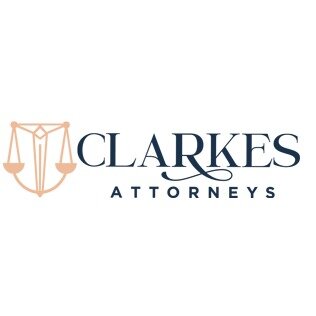Best Collaborative Law Lawyers in Lilongwe
Share your needs with us, get contacted by law firms.
Free. Takes 2 min.
Free Guide to Hiring a Family Lawyer
List of the best lawyers in Lilongwe, Malawi
About Collaborative Law in Lilongwe, Malawi
Collaborative Law is a legal process designed to help parties resolve their disputes with the guidance of their lawyers and other professional experts without going to court. In Lilongwe, Malawi, this approach is gaining popularity as it promotes a more amicable and cost-effective resolution to legal issues, particularly in the areas of family law, business disputes, and contractual disagreements. The process emphasizes cooperation, open communication, and a commitment to reach a mutually agreeable settlement, helping to preserve relationships and reduce the adversarial nature commonly associated with traditional litigation.
Why You May Need a Lawyer
There are several situations where Collaborative Law can be particularly useful, and having a lawyer by your side can facilitate the process. Common scenarios include divorce or separation where parties seek to amicably resolve custody and division of assets, business partners looking to dissolve a partnership without lengthy court proceedings, and contractual disputes where both sides prefer a more peaceful resolution. Lawyers trained in Collaborative Law can help navigate these conversations, ensuring all parties' rights and interests are adequately represented and an agreement is reached efficiently.
Local Laws Overview
Collaborative Law in Lilongwe aligns with Malawi's broader legal framework, which emphasizes dispute resolution through alternative means where possible. The legal system supports mediation and arbitration, and Collaborative Law fits within this context as a voluntary, structured process for conflict resolution. Key aspects of the local laws that relate to Collaborative Law include contractual agreements being enforceable if all parties willingly sign, and confidentiality requirements meant to protect the integrity and privacy of the settlements made outside of court. Understanding the legal environment helps participants enter the process informed and prepared.
Frequently Asked Questions
What is the first step in pursuing Collaborative Law?
The first step is to consult with a lawyer who specializes in Collaborative Law to assess whether your case is suitable for this process.
How does Collaborative Law differ from mediation?
While both Collaborative Law and mediation aim to resolve disputes outside of court, Collaborative Law involves each party having their own attorney, whereas mediation usually has one neutral mediator assisting all parties.
Is Collaborative Law enforceable in Malawi?
Yes, agreements reached through Collaborative Law are legally binding once they are documented and signed by all parties involved.
What types of disputes can be settled through Collaborative Law?
Collaborative Law is commonly used for family law issues, business disputes, and contractual disagreements, among others.
Do both parties need to agree to use Collaborative Law?
Yes, both parties must willingly agree to participate in the Collaborative process for it to proceed.
Can Collaborative Law be used if there is an imbalance of power between parties?
Yes, lawyers and other professionals involved work to ensure a balanced power dynamic, so all parties can effectively participate.
What happens if no agreement is reached in Collaborative Law?
If no settlement is reached, parties may then consider litigation, although professionals involved in the Collaborative process typically withdraw in such cases.
How long does a Collaborative Law process usually take?
The duration varies based on the complexity of the issues and the cooperation level of the parties, but it is generally quicker than traditional litigation.
Is Collaborative Law a confidential process?
Yes, confidentiality is a core principle of Collaborative Law to encourage openness and honesty during negotiations.
Are there any costs involved in Collaborative Law?
Yes, while often less expensive than litigation, there are costs related to hiring legal representation and any additional professionals required.
Additional Resources
For more information and assistance, interested individuals can refer to the Malawi Law Society, which can provide a list of qualified Collaborative Law practitioners. Additionally, institutions such as the Ministry of Justice and other legal aid organizations can offer guidance and support for those considering Collaborative Law.
Next Steps
If you are contemplating pursuing Collaborative Law, start by consulting with a specialized Collaborative Law attorney in Lilongwe. They can assess your situation and inform you about the suitability and potential benefits of this process. Ensure to gather all necessary documents related to your case and be prepared to engage openly with the other party to navigate towards a mutually beneficial resolution.
Lawzana helps you find the best lawyers and law firms in Lilongwe through a curated and pre-screened list of qualified legal professionals. Our platform offers rankings and detailed profiles of attorneys and law firms, allowing you to compare based on practice areas, including Collaborative Law, experience, and client feedback.
Each profile includes a description of the firm's areas of practice, client reviews, team members and partners, year of establishment, spoken languages, office locations, contact information, social media presence, and any published articles or resources. Most firms on our platform speak English and are experienced in both local and international legal matters.
Get a quote from top-rated law firms in Lilongwe, Malawi — quickly, securely, and without unnecessary hassle.
Disclaimer:
The information provided on this page is for general informational purposes only and does not constitute legal advice. While we strive to ensure the accuracy and relevance of the content, legal information may change over time, and interpretations of the law can vary. You should always consult with a qualified legal professional for advice specific to your situation.
We disclaim all liability for actions taken or not taken based on the content of this page. If you believe any information is incorrect or outdated, please contact us, and we will review and update it where appropriate.









